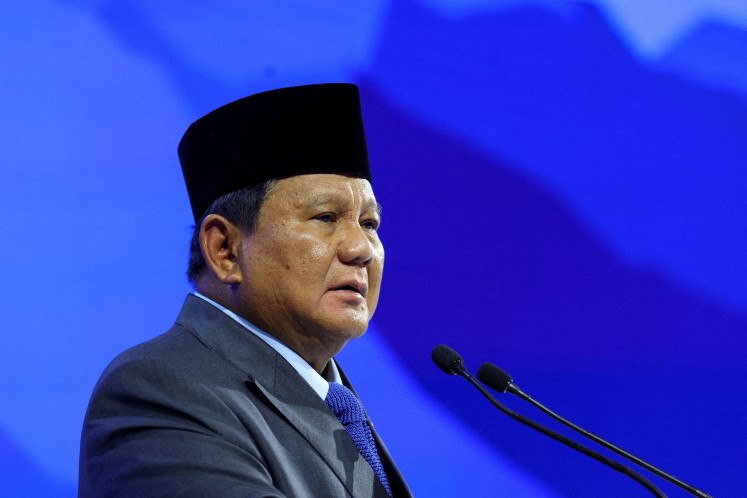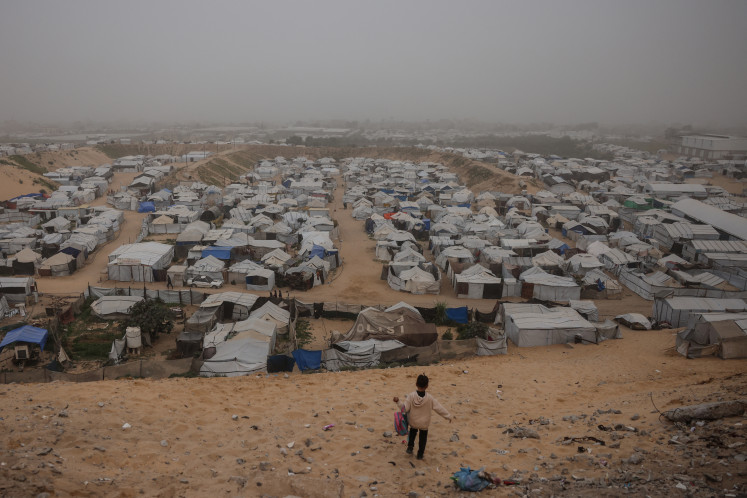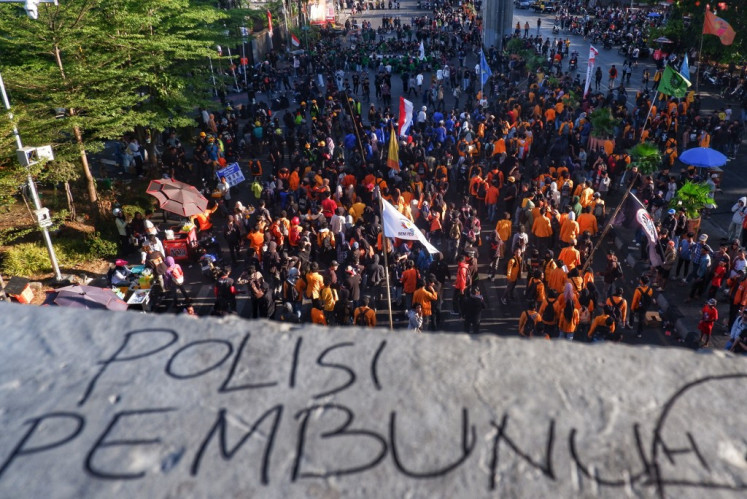Popular Reads
Top Results
Can't find what you're looking for?
View all search resultsPopular Reads
Top Results
Can't find what you're looking for?
View all search resultsGaza war rattles European politics from the left
This shift in support, echoed across Europe, represents the latest threat - this time from the left - to mainstream political parties whose project to deepen European integration is already under attack from the far-right.
Change text size
Gift Premium Articles
to Anyone
N
adir Aslam, a German of Moroccan-Pakistani heritage, had been planning to vote Green in this week's elections to the European Parliament. Instead, he will throw his support behind Mera25, a start-up leftist party with a clear pro-Palestinian stance.
Aslam, 33, told Reuters it was a speech last November by a Green leader doubling down on German support for Israel, even as the Gaza death toll neared 9,000, which "destroyed" his support for the ecologist party, a member of Germany's ruling coalition.
This shift in support, echoed across Europe, represents the latest threat - this time from the left - to mainstream political parties whose project to deepen European integration is already under attack from the far-right.
The trend is not only among the EU's Muslim communities but also among left-leaning voters who see a double standard in Europe's condemnation of the Oct. 7 Hamas attack on Israel but failure to call out Israel for its military assault on Gaza which has killed more than 36,000 Palestinians.
"We have a rise in radical right and radical left parties, (which will) reshape the policy landscape in Europe, the balance of power of several parties," said Samira Azabar, a sociologist at Radboud University in the Netherlands.
This could have consequences for the bloc's position on Israel and also drive policies granting more decision-making power at a national level, she said. EU members Spain and Ireland have recognized a Palestinian state, as has Slovenia's government, pending parliamentary approval.
Polarization
While the popularity of the far-right has been rising in recent years, surveys show minorities have been voting more for the radical left as mainstream parties drift rightwards on issues such a migration and cultural values.
Polling last month by Ipsos showed the far-right set to make the biggest gains in the June 6-9 elections, with the Left group in the EU assembly gaining six more seats - both at the expense of the Social Democrat, Green and Renew Europe blocs.
In France, far-left La France Insoumise (LFI) has centered its campaign on a pro-Palestinian stance in a bid to win Muslim and radical-left voters, said Blandine Chelini-Pont, a historian at Aix-Marseille University.
It seeks an arms embargo, sanctions on Israel, recognition of a Palestinian state and - in contrast to other left-wing groups - refrains from calling Hamas a terrorist group. Among Muslim voters in France it polls at 44 percent support compared to its 8 percent share of the electorate as a whole.
"Some will say we are surfing on an electorate but who are we speaking about? These are citizens of this country who do not have a racist vision of society," LFI lawmaker Sebastien Delogu told Reuters.
France's Socialists also seek recognition of a Palestinian state but do not share LFI's stance on Hamas.
"LFI has a relationship with violence that is not okay," lead Socialist candidate Raphael Glucksmann told Reuters, who says his rise in the polls to third place at 14 percent is in part due to his choice to distance himself from LFI.
Historical factors
In Germany, pro-Palestinian startup parties are eroding support for the German Greens and Social Democrats, two of the mainstream parties which have maintained a staunch support for Israel due to Germany's historical responsibility for the Holocaust.
Aside from leftist Mera25, other pro-Palestinian start-ups include socially conservative groups like DAVA and BIG and the Eurosceptic party BSW - which wants an arms embargo on Israel while pushing anti-immigration policies.
Supporters of BSW, which is polling at 7 percent, are 50 percent more likely to recognize a Palestinian state than the overall German electorate.
In Spain, where tensions with Israel date back to the Franco dictatorship, government recognition of a Palestinian state is shoring up support for parties in the ruling coalition, the Socialist Party (PSOE) and far-left Sumar.
"The Palestinian issue has become central to the political debate in Spain," said David Hernandez, professor of International Relations at the Complutense University of Madrid.
Mobilizing the minority vote
Voter turnout could be key.
Radboud University's Azabar noted that turnout was often lower among ethnic minorities than for the general population in EU elections, but the Gaza war may be a motivation this time.
Foreign policy issues have a track record of impacting the ethnic minority vote. In 2016, Germany's Social Democrats lost some 100,000 Turkish voters after recognizing the Armenian genocide of the First World War, said Teyfik Özcan, chairman of DAVA, a new party targeting Turkish diaspora voters.
Özcan, a former SPD member, said his party offered the option of a protest vote that didn't exist until now.
"Germans have the opportunity to say, 'Okay, I'm voting for the [far-right] AfD in protest.' Muslims cannot do that," he told Reuters.
A December survey by the Institute of Political Science at the University of Duisberg-Essen showed that one in three German Muslims did not feel represented by any party.
A new sense of political representation resonates for French voters too. LFI has named as a candidate French-Palestinian lawyer Rima Hassan, who is present at protests, active on social media and is petitioning the EU to suspend its association agreement with Israel.
Chama Tahiri Ivorra, a 34-year old French-Moroccan chef, said she had never voted in a European election but would this time.
"Voting for Rima is an act of resistance," she said. "I don't know all the points on LFI's program but what she and their other members say about Palestine is just."










